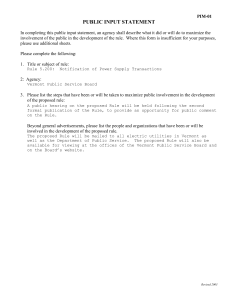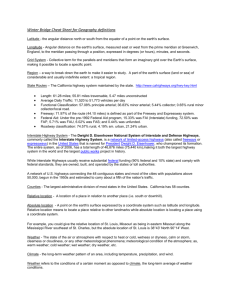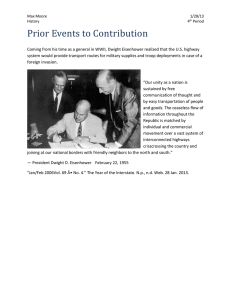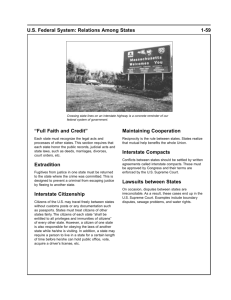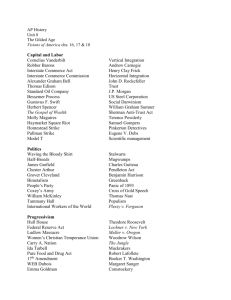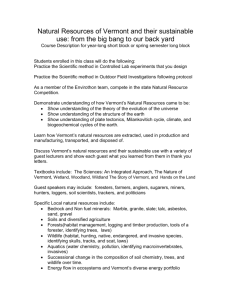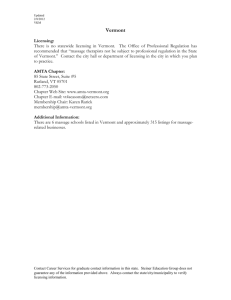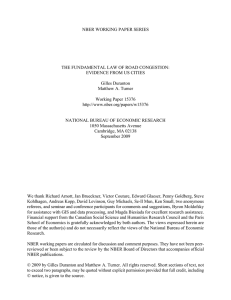interstates - University of Vermont
advertisement
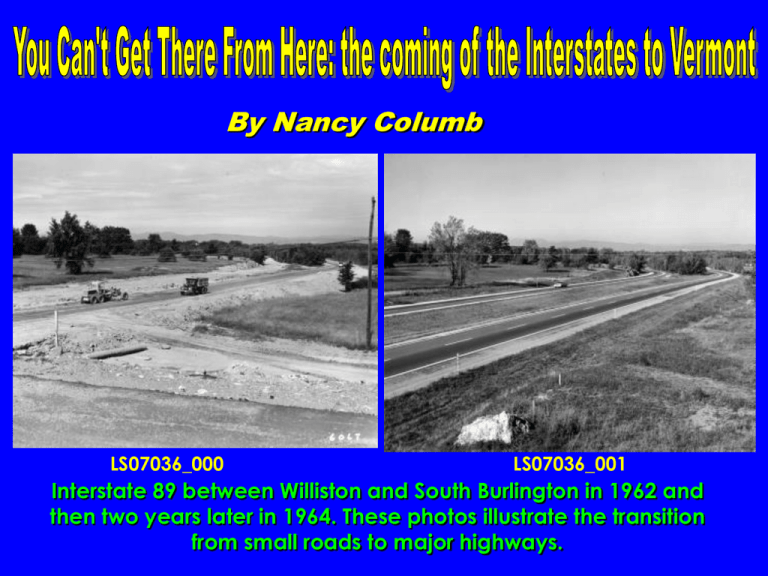
By Nancy Columb LS07036_000 LS07036_001 Interstate 89 between Williston and South Burlington in 1962 and then two years later in 1964. These photos illustrate the transition from small roads to major highways. The first idea for a set of superhighways came from President Eisenhower when he traveled across the US as a lieutenant colonel in the army (right)1 and when he was in Germany and witnessed the Autobahn2. The Autobahn increased vehicular safety and could be used for military purposes; this is what President Eisenhower envisioned for the United States. In 1956 President Eisenhower received support from the FederalAid Highway Act to begin constructing what he called the “National System of Interstate and Defense Highways.” 3 LS08768 It didn’t take long for construction to start in Vermont. This is the beginning of some construction on Interstate-91 in Brattleboro in 1958. There was more than just road to be built when it came to Vermont’s hilly and uneven areas. This is construction of bridges on Interstate-91 in Rockingham. LS05905 Signs had to be posted as well so that drivers would know how far to the next destination they were, and where to expect an exit ramp; another example of safety features LS08123 The terrain around Vermont was not always conducive to straight-up paving of roads. Here outside of Montpelier a crane removes steep rock outcroppings along where the road will go. LS06519 Before the Interstate Highway System, many places in Vermont were farmland with a few scattered houses and one or two main roads. This aerial photo from 1927 of some land along the Winooski River between Williston and Richmond depicts that scenario. LS01458_000 Here is the same area along the Winooski River in 2004, now with many more houses and Interstate 89 running through the middle. Even the covered bridge was replaced with a metal one. LS01458_001 But as a result of skyrocketing farming prices and the increasing ease of importing goods due to railways and the Interstate, much of the previous farmland has been reforested. That is evident here in Royalton, Vermont in 1927, where much farmland is visible. LS01444_000 In the same area, 77 years later, some of the area is still open but there is much more forest than before. Interstate 89 is also a major change to the area. LS01444_001 LS07035_000 Here is the very beginning of road layout and an exit ramp for Interstate-89 in Williston, Vermont around 1961. LS07035_001 Three years later, in 1964, the road is finished and complete with road signs. It is now available for cars to travel on. LS09336 Here men from the Vermont Highway Department dump roadside litter into the truck. Aside from the accumulation of litter, many other large trucks could travel the interstate allowing for growth of business by speeding up the delivery process and driving down warehouse storage costs. From all the construction and planning by the state and federal governments came the Interstates of today that we all know and love: I-89 and I-91 here in Vermont, such as this stretch outside of Middlesex. LS01432_001 From dirt roads and covered bridges… To asphalt, cement, and metal. 1. Weingroff, Richard F. “Federal-Aid Highway Act of 1956: Creating the Interstate System”. Public Roads. 1996. http://www.tfhrc.gov/pubrds/summer96/p96su10.htm 2. GE 342 - Military Geology PowerPoint Presentations. University of Missouri -Rolla. http://web.umr.edu/~rogersda/umrcourses/ge342/ 3. “National Interstate and Defense Highways Act”. 1956. U.S. National Archives & Records Administration. http://www.ourdocuments.gov/doc.php?flash=true&doc =88
